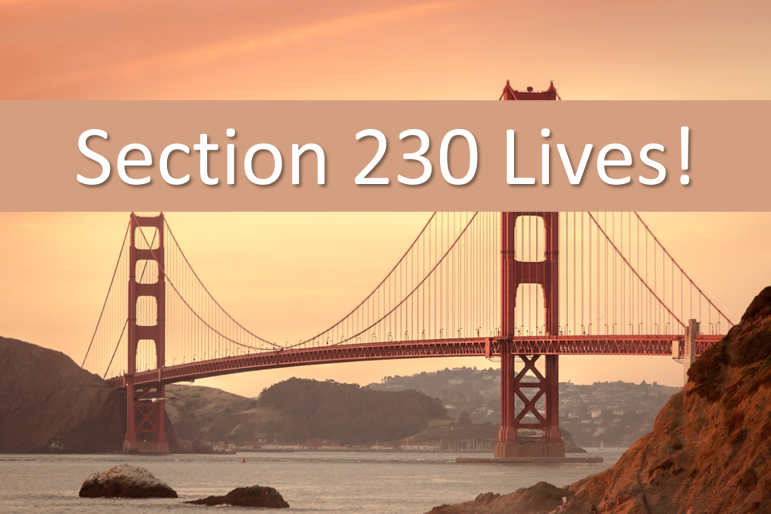Last week, on July 2, 2018 the Supreme Court of California overturned rulings that arguably threatened the ability for online platform users to share their thoughts and opinions freely by ruling in favor of Yelp in the hotly contested and widely watched Hassell v. Bird case.
For those that aren’t familiar with the underlying facts, I offer the following quick background:
In 2014 a dispute arose between California attorney, Dawn Hassell and her former client, Ava Bird when Bird posted a negative review of Hassell on the popular business review site, Yelp. Hassell claimed that the content of the post was, among other things, defamatory and commenced an action against Bird for the same in the Superior Court of the County of San Francisco, Case No. CGC-13-530525. Bird failed to appear, and the Court entered a default order in favor of Hassell. There is question as to whether Bird was actually served. In addition, the court ordered Yelp, a non-party to the case who did not receive notice of the hearing, to remove reviews purportedly associated with Bird without explanation and enjoined Yelp from publishing any reviews from the suspected Bird accounts in the future. Yelp challenged this order, but the court upheld its ruling.
Hoping for relief, Yelp appealed the decision to the California Court of Appeal, First Appellate District, Division Four, Case No. A143233. Unfortunately for Yelp, the Appellate Court offered no relief and held that: Yelp was not aggrieved by the judgment; the default judgment which including language requesting non-party Yelp to remove the reviews from the website was proper; that Yelp had no constitutional right to notice and hearing on the trial court’s order to remove the reviews from the website; that the order to remove the reviews from Yelp and to prohibit publication of future reviews was not an improper or overly broad prior restraint; and that the Communications Decency Act (“CDA” or “Section 230”) did not bar the trial court’s order to remove the reviews.
The Appellate Court’s ruling was clearly contrary to precedent in California and elsewhere around the country. Yelp appealed the matter to the California Supreme Court, Case No. S235968, to “protect its First Amendment right as a publisher, due process right to a hearing in connection with any order that targets speech on Yelp’s website, and to preserve the integrity of the CDA” according to the blog post written by Aaron Schur, Yelp’s Deputy General Counsel. While Yelp led the charge, they were not left to fight alone.
The internet rallied in support of Yelp. Dozens of search engines, platforms, non-profit organizations and individuals who value the free sharing of information and ideas contributed amicus letters and amicus briefs (I co-authored an amicus brief for this case) in support of Yelp, including assistance from those like UCLA Law Professor and Washington Post contributor Eugene Volokh and Public Citizen Litigator, Paul Alan Levy, whose work spotlighted the ease in which bogus court orders and default judgments are obtained for the sole purpose of getting search engines like Google to de-index content. In case you are wondering, bogus court orders and false DMCA schemes are indeed a real problem that many online publishers face.
On April 3, 2018 the California Supreme Court heard oral argument on the case. On July 2, 2018 the Supreme Court released its 102 page opinion in a 3-1-3 decision (three on a plurality opinion, one swing concurring, and three dissenting via two opinions) holding that Hassell’s failure to name Yelp as a defendant, an end run-around tactic, did not preclude the application of CDA immunity. The court clearly stated “we must decide whether plaintiffs’ litigation strategy allows them to accomplish indirectly what Congress has clearly forbidden them to achieve directly. We believe the answer is no.” Based upon this win for the Internet, at least for now, online publishers in California (or those who have had this case thrown at them in demand letters or pleadings since the original trial and appellate court rulings) can breathe a sigh of relief that they cannot be forced to remove third-party content.
Aaron Shur made an important statement in concluding the Yelp blog post “…litigation is never a good substitute for customer service and responsiveness, and had the law firm avoided the courtroom and moved on, it would have saved time and money, and been able to focus more on the cases that truly matter the most – those of its clients.” It’s important in both our professional and personal life to not get stuck staring at one tree when there is a whole forest of beauty around us.
While this is indeed a win, and returns the law back to status quo in California, it does raise some concern for some that certain comments in the opinion are signaling Congress to modify Section 230, again (referring to the recent enactment of FOSTA). Santa Clara Law Professor, Eric Goldman broke down the Court’s lengthy opinion (a good read if you don’t want to spend the time to review the full opinion) while pointing out that “fractured opinions raise some doubts about the true holding of [the] case.” The big question is where will things go from here? Indeed, only time will tell.
Citation: Hassell v. Bird, 2018 WL 3213933 (Cal. Sup. Ct. July 2, 2018)

